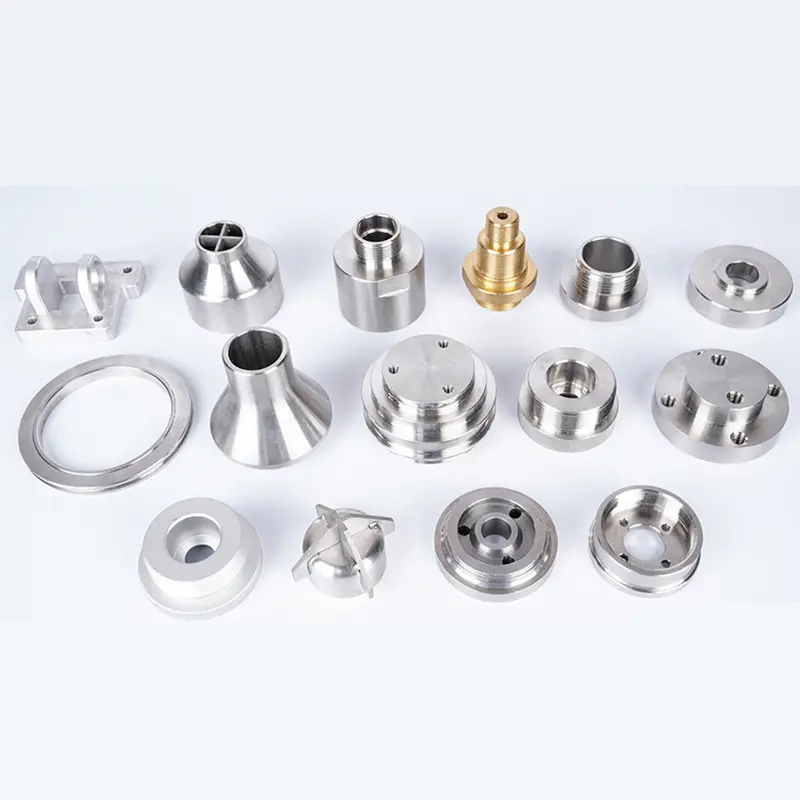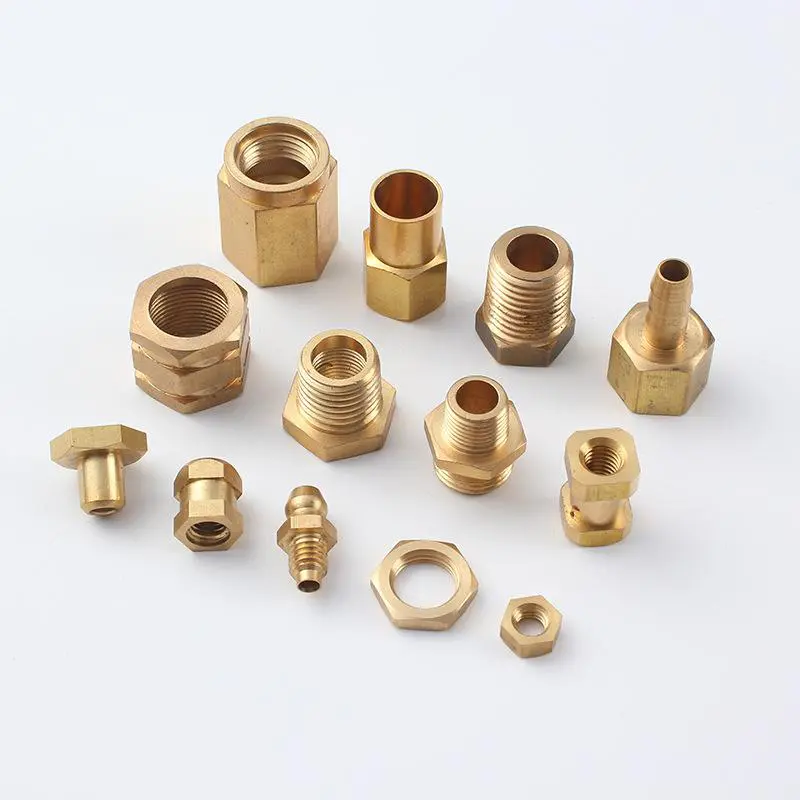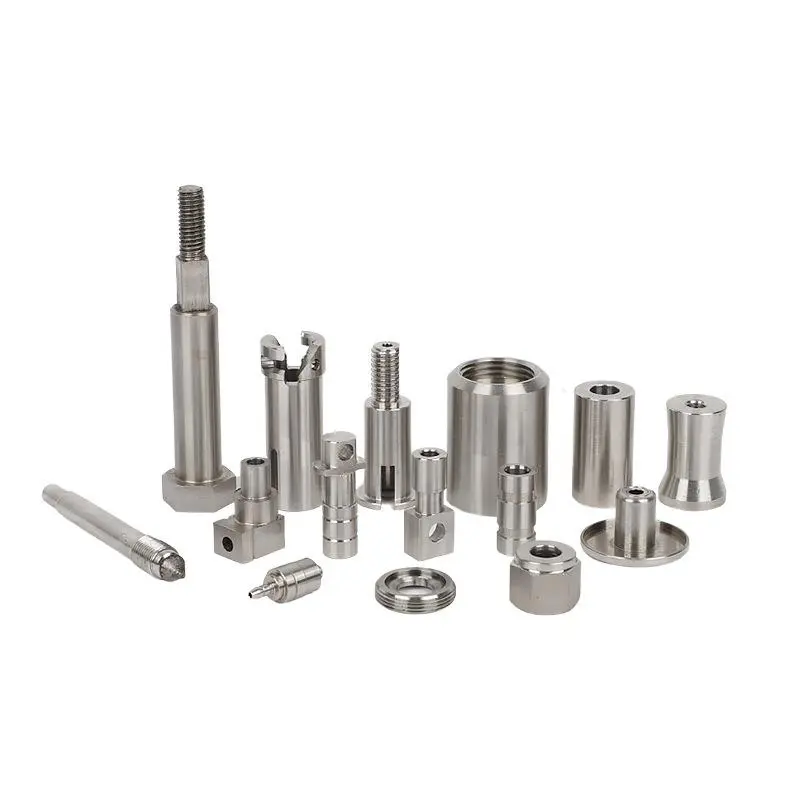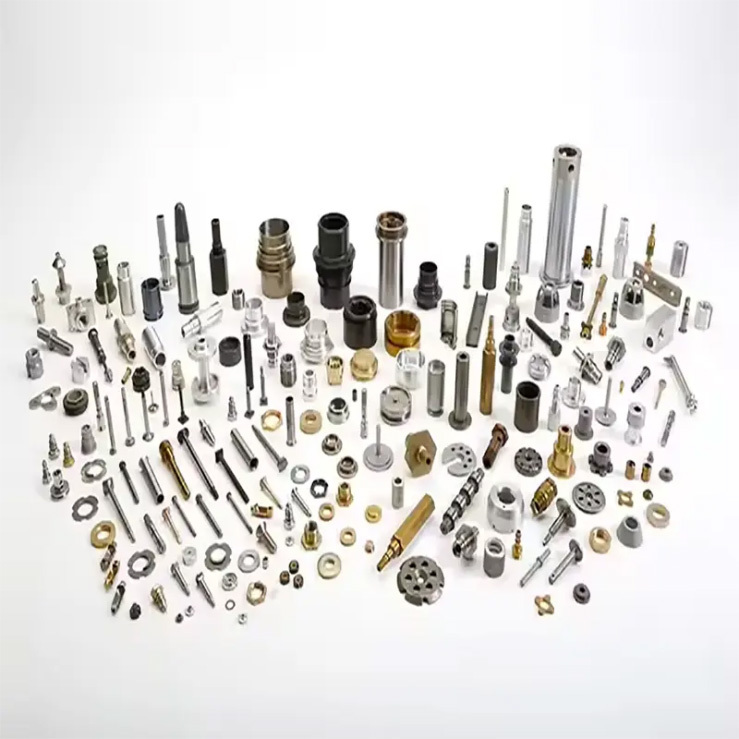Understanding CNC Swiss Brass Machined Parts: Benefits and Applications
Published Time:
2025-10-15
CNC Swiss brass machined parts have become increasingly popular in the manufacturing industry due to their precision and versatility. This machining method utilizes computer numerical control (CNC) technology combined with the Swiss turning process, allowing manufacturers to produce highly intricate and precise components. The unique capabilities of CNC Swiss machines make them ideal for creating parts with tight tolerances, often required in various applications such as medical devices, automotive components, and electronic enclosures.
One of the primary advantages of CNC Swiss brass machined parts is the material itself. Brass, known for its excellent machinability, corrosion resistance, and favorable thermal and electrical conductivity, is a preferred choice for many applications. The properties of brass not only enhance the durability of the machined parts but also improve their performance in specific environments. For instance, in plumbing and electrical applications, the non-corrosive nature of brass ensures long-lasting functionality.
Moreover, the Swiss turning process allows for the production of complex geometries and features, which are often challenging to achieve with conventional machining methods. This capability is particularly beneficial when manufacturing small, precision components that require high accuracy. CNC Swiss machines can achieve features like threads, grooves, and intricate patterns with minimal human intervention, reducing the risk of errors and increasing efficiency.
In addition to precision and complexity, CNC Swiss brass machined parts offer significant time savings in production. The ability to set up and run multiple operations in one machine cycle minimizes the need for secondary operations. This efficiency translates into shorter lead times and lower production costs, making it an attractive option for manufacturers looking to optimize their workflows.
The versatility of CNC Swiss brass machined parts extends beyond their applications in the medical and automotive industries. They are also widely used in aerospace, telecommunications, and consumer electronics, where performance and reliability are paramount. As industries continue to evolve, the demand for high-quality, precision-engineered components is expected to rise, further solidifying the importance of CNC Swiss machining in the manufacturing landscape.
In conclusion, CNC Swiss brass machined parts represent a significant advancement in manufacturing technology. Their unique advantages, including material properties, precision, efficiency, and versatility, make them essential in various industries. Understanding the benefits and applications of these components can help manufacturers make informed decisions about their production processes and material choices, ultimately enhancing their product offerings.
One of the primary advantages of CNC Swiss brass machined parts is the material itself. Brass, known for its excellent machinability, corrosion resistance, and favorable thermal and electrical conductivity, is a preferred choice for many applications. The properties of brass not only enhance the durability of the machined parts but also improve their performance in specific environments. For instance, in plumbing and electrical applications, the non-corrosive nature of brass ensures long-lasting functionality.
Moreover, the Swiss turning process allows for the production of complex geometries and features, which are often challenging to achieve with conventional machining methods. This capability is particularly beneficial when manufacturing small, precision components that require high accuracy. CNC Swiss machines can achieve features like threads, grooves, and intricate patterns with minimal human intervention, reducing the risk of errors and increasing efficiency.
In addition to precision and complexity, CNC Swiss brass machined parts offer significant time savings in production. The ability to set up and run multiple operations in one machine cycle minimizes the need for secondary operations. This efficiency translates into shorter lead times and lower production costs, making it an attractive option for manufacturers looking to optimize their workflows.
The versatility of CNC Swiss brass machined parts extends beyond their applications in the medical and automotive industries. They are also widely used in aerospace, telecommunications, and consumer electronics, where performance and reliability are paramount. As industries continue to evolve, the demand for high-quality, precision-engineered components is expected to rise, further solidifying the importance of CNC Swiss machining in the manufacturing landscape.
In conclusion, CNC Swiss brass machined parts represent a significant advancement in manufacturing technology. Their unique advantages, including material properties, precision, efficiency, and versatility, make them essential in various industries. Understanding the benefits and applications of these components can help manufacturers make informed decisions about their production processes and material choices, ultimately enhancing their product offerings.
NewsCenter
Beijing Pafinal Precision Machinery Co., Ltd.
Email:sales@pafinal.com

Address: No. 239 Huanhe South Road, Tianjin Pilot Free Trade Zone (Airport Economic Zone), Tianjin
中企跨境-全域组件
制作前进入CSS配置样式
sales@pafinal.com:
Whatsapp:
在线客服添加返回顶部
图片alt标题设置: PAFINAL
表单验证提示文本: Content cannot be empty!
循环体没有内容时: Sorry,no matching items were found.
CSS / JS 文件放置地




 2025-10-16
2025-10-16


